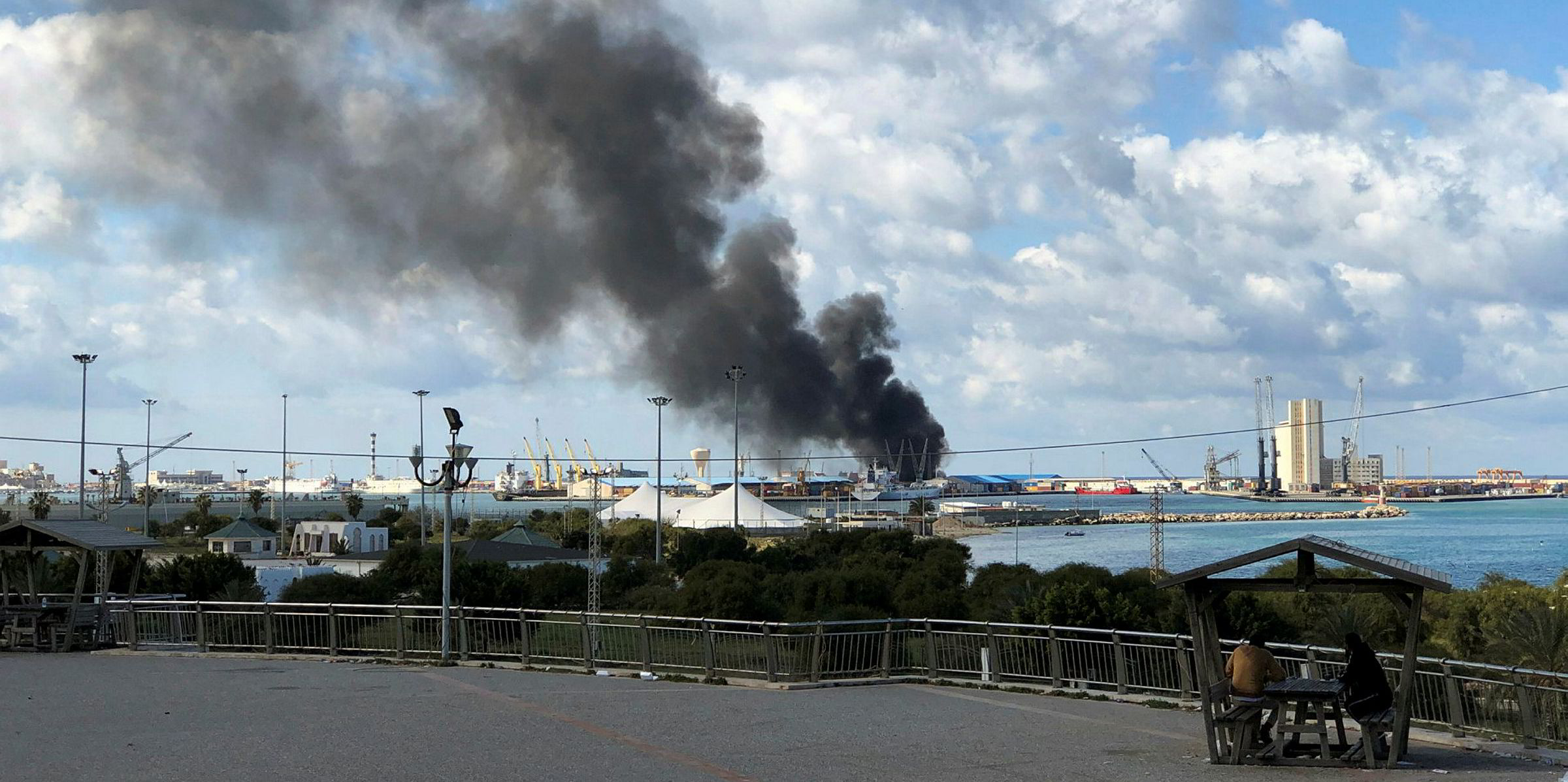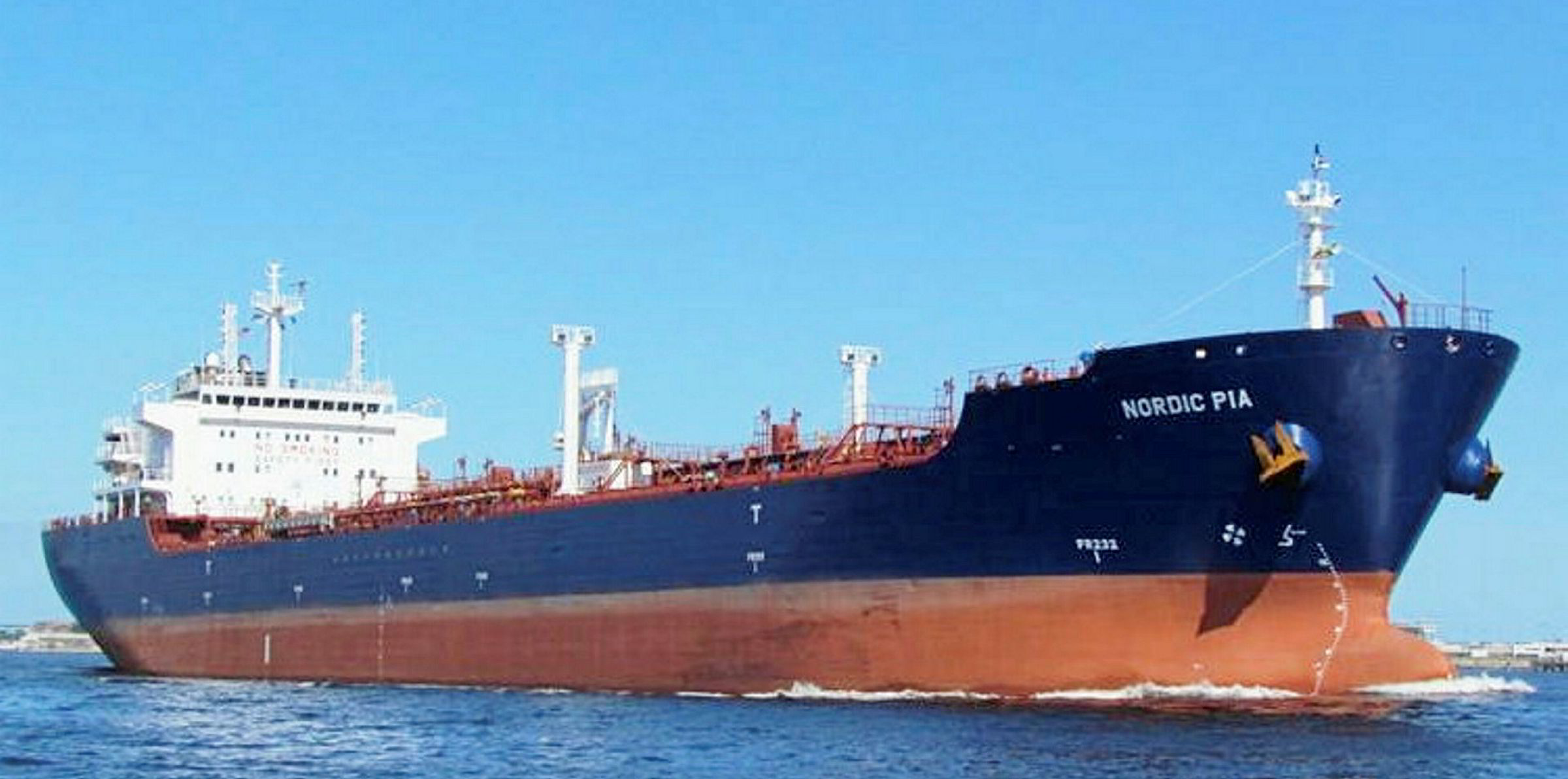Tankers were told to leave the port of Tripoli and an LPG carrier had a narrow escape after the terminal was shelled by forces loyal to warlord Khalifa Haftar's Libyan National Army (LNA) on Tuesday.
Shipping operations came to a halt just as United Nations-brokered talks on the country’s 10-month civil conflict were resuming.
Tankers and LPG carriers were being evacuated before they had unloaded, according to an official at state-run National Oil Corp (NOC).
NOC confirmed that fuel vessels had evacuated urgently from Tripoli and all offloading operations were cancelled after projectiles struck "metres away" from a "highly explosive" LPG carrier discharging there.
Chairman Mustafa Sanalla said the attack could have led to "a humanitarian and environmental disaster and it will have a significant impact on a crowded region like Tripoli."
He added: "The city does not have operational fuel storage facilities as the capital’s main storage warehouse was evacuated as a result of the fighting on Airport Road area, where the warehouse is located.
Attack condemned
"The consequences will be immediate; hospitals, schools, power stations and other vital services will be disrupted. We condemn this behaviour in the strongest possible terms and ask the international community to intervene rapidly to prevent a serious escalation in the conflict and to allow NOC to manage fuel supplies.”
The unnamed LPG ship and a product left the port safely, NOC added.
NOC is exploring alternative ways to supply Tripoli and its surroundings with fuel.
AIS data shows Naftomar's 9,102-cbm LPG ship Gaz Venture (built 2011) and the 800-dwt tanker Elhiblu 1 (built 2015) at the port on Tuesday.
Other tankers there included the 35,000-dwt Anwaar Libya (built 2004) and 29,000-dwt Anwaar Al Naser (built 2006), both operated by Libya's GNMTC, and the 1,200-dwt bitumen ship Amargi (built 1974).
Bulkers, reefers and offshore vessels were also moored in the port, which is not an export terminal for Libya's own oil output.
Unverified claim
The LNA said it had targeted and destroyed a Turkish ship carrying weapons, the al-Arabiya TV channel reported.
This has not been verified independently, however.
Photos show black smoke billowing from the terminal.
Reuters cited a port source as saying a warehouse had been hit, but no ship.
The defending government forces in Tripoli were cited as saying three civilians were killed and five others wounded in the incident.
Security consultancy Ambrey said that unverified satellite imagery of the port and imagery allegedly from the port indicated that facilities next to a ro-ro and tug were hit. Both ships are linked to Turkey.
Tripoli has stayed open for food and other imports since the eastern-based LNA started an assault on the city last April.
The LNA and its allies blocked major ports in eastern Libya and the southern Sharara oilfield last month, reducing oil output by more than 1m barrels a day.
An LNA statement on Facebook said: "A Turkish ship loaded with weapons and ammunition, which docked this morning in the port of Tripoli, was destroyed."
It claimed the unnamed vessel was transporting munitions to the Tripoli-based Government of National Accord (GNA) and its armed forces.
Turkey has previously warned the LNA that any attack on their personnel or assets in Libya will be met with force.
The GNA walked out of talks later on Tuesday.
High risk in area
Security consultancy Dryad Global said there was a "suggestion" that a Turkish-owned tug named as Balaban had suffered damage to its bridge.
It added: "The attack upon Tripoli port is particularly troubling, and confirms Dryad’s long-held assessment that indiscriminate shelling in the proximity of the port, potentially targeting Mitiga International Airport, would effect the port area.
"So far it is not confirmed the attack was deliberate. However, suggestions that a cargo vessel from Turkey was in port, and may have been unloading weapons destined for the GNA, suggests a particular target.
"This is however unverified, but if true it would be the first instance of clear targeting of the port area, and may heighten the threat to vessels due to indirect targeting."
Dryad said: "So far a point of origin for the artillery attack, and if it was conducted by the LNA, cannot be verified.
"Due to this ongoing threat, Dryad assesses there remains a high threat in Tripoli into the short term, and vessels and personnel are advised to avoid the port of Tripoli."






